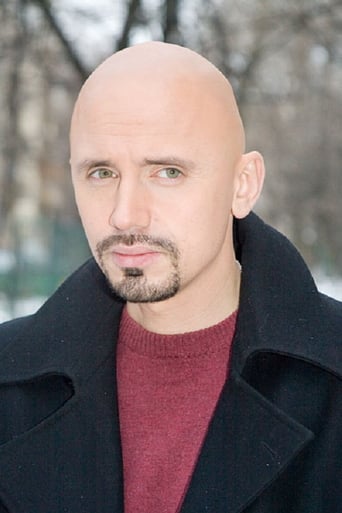Lumsdal
Good , But It Is Overrated By Some
Cleveronix
A different way of telling a story
Taraparain
Tells a fascinating and unsettling true story, and does so well, without pretending to have all the answers.
Erica Derrick
By the time the dramatic fireworks start popping off, each one feels earned.
jromanbaker
A response to moronic reviewers.The majority of the bad reviews here come from America, where it seems there can be no positive reaction to beauty of image, poetry, or an understanding of Russian cinema. It is lamentable that this film does not get higher ratings, but then I sense homophobia to be at work. Arguably the Russians have got used to coded images in their films, especially towards the beauty of the young male face and figure. From Eisenstein, through 'Ballad of a Soldier' to 'Father and Son', and if homoeroticism is there, under a cruelly oppressive series of political regimes, the code is necessary for survival. America needs no codes, it just ignores positive representation, and those that exist get lost in independent gay film which rarely gets seen outside of festivals.This is a beautiful film. Watch it as you would read a poem. 'Mirror' by Tarkovsky is applauded as a masterpiece, and this film, in all its glorious mystery of image and action, stands, needing no comparison. There is a place beyond traditional meaning, and that place is the imagination, and of course it is not a film that releases all its meanings, subtexts and observations on Russian life to a reductive interpretation. The homophobia of some reviews is never quite stated, but is there; what is less obvious is an understanding of the profound inner soul of Russian cinema at its best.
Kirpianuscus
only a poem. bitter, cold, honest image against reality, precise verdict about an institution. in same measure, an aesthetic delight. because it seems be at the border between dream and reality.because, behind eroticism or humiliations, it preserves the flavor of Paradjanov , Sokurov or Tarkovsky work, the fundamental lines from war films and the precise verdict about a political system. more than a film, it is a wake up. a strange story from East, aggressive and delicate, terrible and useful. the force of images does, in many scenes, the story only a pretext. and the feeling after the final credits remains long time as convincing warning/testimony in the memory of the viewer.
valis1949
Obviously,this piece is not meant to be a realistic portrayal of life in the armed forces. The film is a composite of long, dreamy shots that almost convey a dreamlike atmosphere. Many times, it seems like a water color painting come to life. Characters are not in any way developed, but only used to further the subjective 'feel' of the film. 100 DAYS BFORE THE COMMAND is meant as a loose, artistic 'film-poem' designed to show experience in an imaginative way. Although it doesn't succeed 100%, it still creates a valid aesthetic experience. You will only be frustrated if you try to view it as something that might turn up on '60 Minutes'.
peter-209
This is, and I guess, will remain, an extremely underrated film. There is no chance that those of us who are just a little bit intellectually lazy will like it. The viewer's participation in creating (or re-creating) the plot is absolutely required, to an even higher extent than in Bertolucci's "Besieged". This short film consists of several disconnected vignettes from the life of the Red Army soldiers living, training, working - and let us not forget: washing themselves - on an army base. The country is deserted and the buildings are dilapidated, but everything is beautifully shot. The atmosphere is oneiric, the dreams and imaginations blend with the reality, thus resembling the works of the Master - Andrei Tarkovsky or the Disciple - Aleksander Sokurov. There is not much dialog, which leaves us on our own to interpret sometimes surrealistic happenings on the screen. As in many other soldier movies, the topic is the clash between individual's humanity and the inherent brutality of the system. The clash is treated very delicately, there is not a single scene of the direct physical violence in the movie. Yet, we witness - or infer, for that matter - hazing and several deaths on the camp. Although not an overly gay film, it is remarkably open in its homoerotic subtexts. In contrast, the scenes with direct nudity, like those in the showers or the pool, are devoid of eroticism. They are shot in a documentaristic style, but the beautiful sacral music of Johann Sebastian Bach gives them another meaning and elevates them to unanticipated heights. The film opens with a biblical motto and it is not a chance that the story of St. George battling the dragon appears twice in the movie. Another hint to a deeper meaning of the film is that two persons of the cast are named Death and Angel... As for the acting, there will be some that will not like it, but, incredibly, all the roles are played by real-life soldiers, except for one professional actor (guess which). Watching "Sto dnei do prikaza" (and I recommend to watch it multiple times ) is a strange, difficult, but rewarding experience.



